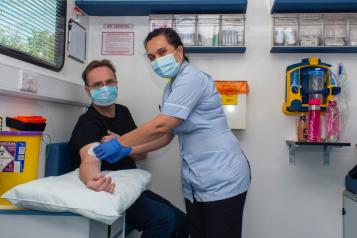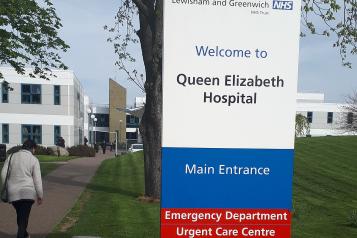South east London CCG participates in CQC review of ‘do not resuscitate' decisions during the pandemic

Following their unannounced, focused inspection at Queen Elizabeth Hospital in December, the CQC has published a new report showing worrying variation in people’s experiences of do not attempt cardiopulmonary resuscitation (DNACPR) decisions during the pandemic.
While there were some examples of good practice, the CQC also heard from people who were not properly involved in decisions, or were unaware that such an important decision about their care had been made.
This report has drawn input from seven NHS Clinical Commissioning Groups (CCG), including the south east London CCG, as well as responses from providers of adult social care, a national public survey, and local voluntary sector organisations.
Have your say
It only takes a minute to tell us about your experience of health and social care. We use your views to raise concerns with the people running NHS and social care services to make care better.
Summary of the report
From the beginning of the COVID-19 pandemic, there were concerns that ‘do not attempt cardiopulmonary resuscitation’ (DNACPR) decisions were being made without involving people, or their families and/or carers if so wished, and were being applied to groups of people, rather than taking into account each person’s individual circumstances.
DNACPRs are also known as DNRs and DNARs. The CQC use use DNACPR in the report for consistency.
In October 2020, the Department for Health and Social Care commissioned CQC to conduct a special review into these concerns. Our review, which took place between November 2020 and January 2021, looked at how DNACPR decisions were made in the context of advance care planning, across all types of health and care sectors, including care homes, primary care and hospitals.
During our review, we heard about the experiences of over 750 people and about the distress that people face when they do not feel involved in decisions about their care. When done well, DNACPR decisions are an important aspect of advance care planning, and people should be fully involved in discussions about their care.
See the full report on the CQC website to find out about findings and recommendations.
Protect, respect, connect – decisions about living and dying well during COVID-19

